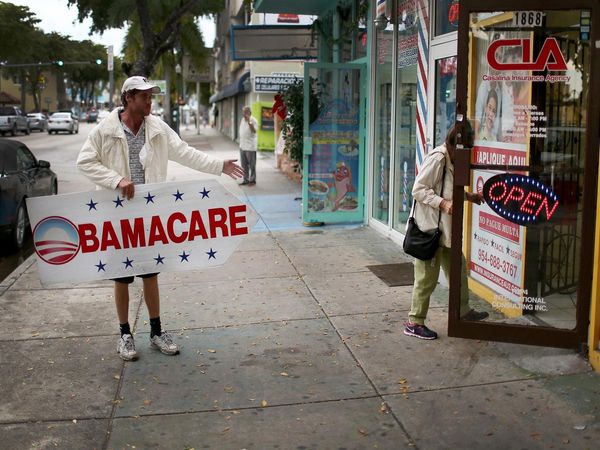The latest rankings are out, and the Southeastern Conference has three in the top 10, including ... Missouri?
No, the Tigers football team isn't in the top 10. But the city of Columbia cracked the No. 8 spot on Wednesday's New York Times rankings of another kind. It's a list of cities with the greatest number of new COVID-19 cases, relative to their population.
No. 2 was Oxford, Mississippi. No. 6 was Athens, Georgia. Sitting at No. 7? Champaign, Illinois. In fact, 12 of the top 20 were big-time college football cities, including Stillwater, Oklahoma; Tallahassee, Florida; Lubbock, Texas; Manhattan, Kansas. Months ago, this list concerned a city with a different Manhattan. Now, just in time for fall football, college towns are among the leaders in rising COVID cases.
This week, many teams kick off their seasons in big games. But the biggest matchup in college football this year is: money vs. risk.
That's the game that school leaders and conference leaders are playing. It's as much a "crystal ball" as it is football.
In fact, the Big Ten, Pac-12 and numerous smaller conferences have opted to cancel fall football. They'll look to play later in the school year. But the SEC and Big 12 and many others will play games and hope their receivers only catch passes.
Now, medical advisory boards have deemed it OK for the SEC and others to play. But is it responsible? All fall, football teams will do their best to protect their players from catching the coronavirus. But we saw it with the St. Louis Cardinals _ even though the team took precautions, the virus slipped into their world, and before they could realize it, 18 players and staffers tested positive. Some even went to the hospital. So on these college campuses, some that are doubling as coronavirus hots pots, there is an increased likelihood a player will be infected during the week and then spread the disease on Saturday, right there on national TV. Not ideal. But again, it is money vs. risk _ and college football sure generates a lot of money.
Unlike any other sport, college football is the most apt microcosm for America in 2020. You've got some parts of the country operating regularly, while other parts are taking way more precautions. Prevailing attitudes vary depending on the region. Politics are playing _ even the president of the United States tried to get the Big Ten to kick off this fall _ and big money is swaying. And in the end, just like America in 2020, you'll have an imperfect system that only satisfies some.
This is all tough to grapple with, because we do love our college football. It has such a special spot in our lives, in our families, in our pasts. Watching the games will be a nice escape. That said, it's hard to get extremely excited about the sport if all the conferences aren't playing. It's hard to get fired up for games when you can't fire up grills at pregame tailgates. Stadium crowds will look like spring games. And in the stands, students will be asked to wear masks and be socially distant, while they watch fellow students smash into students from another school, over and over and over. On the field, you'll seldom see "six feet apart" except for the ball and the first-down marker on a third-and-2.
But people will watch from home. Even those against playing games will likely tune into some games. It's irresistible entertainment for so many Americans. And when it comes to COVID, this country has learned to compartmentalize. So, hey, if the school you love and the coach you love is OK with playing on Saturday, maybe you can roll with it. It's similar to head injuries _ fans are aware their favorite players are at constant risk of devastating blows or just many minor ones, which could change players' lives forever. You think about all the stories of struggling retired football players today. But we watch and just hope it won't happen in the game we're watching. Or we watch believing the players understand the risk.
Sports are built on a foundation of invincibility _ "I'm big, strong, fast and young," says an athlete, "so the bad thing won't happen to me."
But the bad thing will happen to some athlete.
The question is _ what's the tipping point? How many players with COVID-19 make playing a the 2020 season unacceptable?
As seen in Wednesday's Post-Dispatch, 14 unidentified Mizzou players were in quarantine for reasons related to COVID-19, coach Eliah Drinkwitz said. Four of the 14 tested positive for the coronavirus. Others had been in proximity to those four or were waiting for test results. Perhaps, because they are big, strong, fast and young, the football players will survive the worst of COVID. But we don't fully know how the virus affects humans in later years.
But, hey, they'll say "c'est la vie" in the name of "woo pig sooie" or "M-I-Z."
College football is back.
Alabama-Birmingham plays Miami (Florida) on Thursday.
On Saturday, Clemson plays Wake Forest.
Duke plays Notre Dame.
Georgia Tech plays Florida State.
And during the coin toss of the biggest matchup of them all, risk will defer to money.







